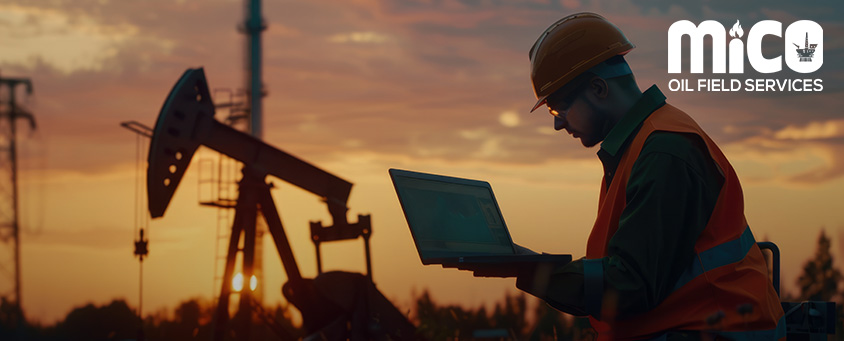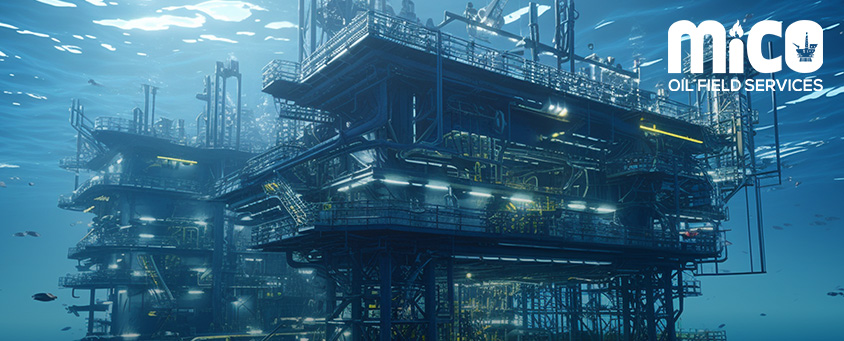Exploration is key to possibilities. As the global demand for energy continues to grow, the oil and gas industry is tasked with finding innovative ways to meet this need while balancing economic and environmental considerations. The future of exploration and production (E&P) is poised to be driven by technological advancements, new geographical frontiers, and a shifting focus toward sustainability. This article delves into the future trends shaping the oil and gas sector, providing insights into the evolving landscape of E&P.
The Shift Toward Unconventional Resources
Traditional sources of oil and gas, such as onshore wells, have been extensively explored, and many are now reaching maturity. This has prompted a shift toward the exploration of unconventional resources, including shale gas, tight oil, and deepwater reserves. Unconventional plays like the Permian Basin in the United States have seen substantial investment due to their vast potential. The International Energy Agency (IEA) reports that by 2030, nearly 70% of the growth in global oil supply will come from unconventional sources.
Unconventional resources are more challenging to extract, requiring advanced technologies such as hydraulic fracturing (fracking) and horizontal drilling. These technologies allow companies to tap into previously inaccessible reserves, boosting global production. While unconventional drilling has its critics due to environmental concerns, it remains a crucial component of future exploration strategies as companies seek to maximize production efficiency.
Technological Innovation: The Digital Oilfield Exploration
The future of E&P is deeply connected with digital transformation. Technologies like artificial intelligence (AI), machine learning, big data, and the Internet of Things (IoT) are becoming integral to modern exploration and production. These technologies are helping companies optimize operations, enhance decision-making, and reduce costs.
For instance, AI-powered predictive analytics can identify the most promising drilling locations, minimizing the risk of dry wells. Similarly, the use of IoT sensors in equipment and infrastructure enables real-time monitoring of production assets, reducing the likelihood of downtime and improving safety. According to a study by McKinsey, digital technologies could lower oil and gas production costs by up to 20%.
Moreover, the concept of the “digital oilfield” is gaining traction, where data-driven insights guide every aspect of operations. From seismic data analysis to reservoir management, digital technologies are transforming how oil and gas companies approach exploration and production, making processes more efficient and reducing environmental impact.
Deepwater and Offshore Exploration
As onshore reserves become increasingly depleted, oil companies are turning their attention to deepwater and offshore exploration. Advances in subsea engineering and drilling technology have made it possible to access oil and gas deposits located several kilometers beneath the ocean floor. Regions such as the Gulf of Mexico, West Africa, and Brazil are emerging as key deepwater exploration hotspots.

The development of floating production storage and offloading (FPSO) vessels, coupled with subsea robotics, has been instrumental in unlocking these reserves. FPSOs allow oil companies to produce, process, and store oil offshore, eliminating the need for extensive pipeline infrastructure. This flexibility is vital for remote offshore locations, where building fixed infrastructure would be cost-prohibitive.
Experts expect the offshore sector to see significant growth in the coming decades, predicting that global offshore production could rise by 20% by 2030.
However, deepwater exploration is not without its challenges, including high costs and environmental risks. Oil spills and blowouts in offshore operations can have devastating ecological consequences, as demonstrated by the Deepwater Horizon disaster. As a result, stricter safety regulations and advancements in spill prevention technologies are crucial for the future of deepwater exploration.

Sustainability and Carbon Management
The oil and gas industry faces growing pressure to reduce its carbon footprint as the world transitions toward cleaner energy sources. Exploration and production activities are energy-intensive and contribute significantly to global greenhouse gas (GHG) emissions. As such, the industry’s ability to implement sustainable practices and align with global climate goals will shape the future of Exploration.
Carbon capture, utilization, and storage (CCUS) technologies are emerging as a key solution for reducing emissions from oil and gas operations. CCUS involves capturing CO2 emissions from industrial processes and storing them underground, preventing their release into the atmosphere. The IEA estimates that by 2050, CCUS could reduce global CO2 emissions by nearly 20%.
Additionally, the integration of renewable energy into E&P operations is gaining momentum. Companies are increasingly powering their offshore platforms with wind or solar energy, reducing their reliance on fossil fuels. For example, Equinor’s Hywind Tampen project in Norway is the world’s first offshore wind farm to power oil platforms, demonstrating the potential for renewable energy to support exploration and production activities.
Emerging Markets and New Frontiers Exploration
As traditional oil-producing regions mature, companies are looking to new markets and frontiers for future growth. Africa, Latin America, and the Eastern Mediterranean are emerging as key regions for oil and gas exploration. Countries such as Mozambique, Guyana, and Israel have made significant discoveries in recent years, attracting investment from major oil companies.
The exploration of new frontiers brings both opportunities and challenges. While these regions offer untapped potential, they often lack the infrastructure and regulatory frameworks needed to support large-scale oil and gas development. Additionally, political instability in some emerging markets can pose risks to long-term investment.
Discussion
Technological innovation, the need for sustainability, and the quest for new frontiers shape the future of oil and gas exploration and production. Unconventional resources and deepwater reserves are critical to meeting global energy demand, while digital technologies are transforming how companies approach E&P. Sustainability is increasingly at the forefront of operations, with carbon management and renewable energy integration playing a pivotal role. Emerging markets offer new opportunities, but geopolitical and environmental challenges remain. As the industry continues to evolve, balancing economic growth with environmental responsibility will be essential for its long-term success.










